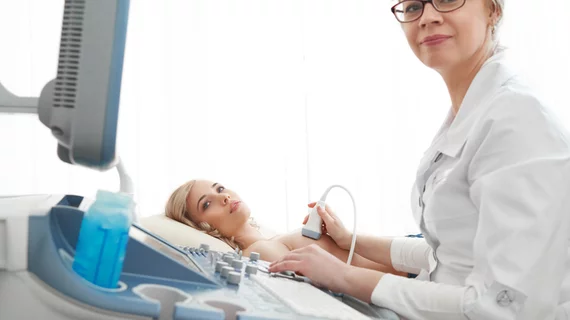Deductibles may prevent women from seeking follow-up breast cancer screenings
Women will often skip recommended follow-up tests after abnormal findings on a mammogram if they have to pay a deductible for those tests, according to new research presented at RSNA 2022.
The observation is based on a survey of 932 patients presenting for breast imaging at Boston Medical Center. More than one in five respondents (21.2%) said that they would skip indicated follow-up imaging if they had to pay a deductible, and an additional 19.5% said that they weren’t sure whether they would go for additional imaging. Just 59.4% of respondents said they would not skip recommended follow-up imaging even if they had to pay for it.
The study covers a gap in previous research about what patients would be willing to pay for, noted lead author Michael Ngo, MD, a radiology resident at Boston Medical Center and Boston University Chobanian and Avedisian School of Medicine.
"Prior studies have shown that out-of-pocket costs deter patients from attending screening mammography," Ngo said in an RSNA-provided statement. "Other studies found that screening rates go down when there is an out-of-pocket cost for follow-up imaging after an abnormal finding on screening mammography. However, there is a lack of research into patient adherence to the recommended follow-up imaging when there is a deductible. Our research aims to address this paucity."
The data is especially relevant due to current coverage conditions under the Affordable Care Act, which dictates that most plans are required to fully cover initial screening mammograms—but not additional screening services—with no out-of-pocket costs for patients.
“If the radiologist detects an abnormal finding on the screening image, then additional images and a biopsy are needed to determine if the patient has cancer. The ACA does not mandate insurance to cover the costs of these additional services," Ngo explained.
High-deductible health plans (HDHPs)—which typically offer lower monthly insurance premiums, but require patients to pay higher deductibles—mean that out-of-pocket deductible costs can exceed $1,400 for singles and $2,800 for families, with Ngo noting that this may cause people to refrain from seeking necessary care.
Ngo also noted disparities in answers based on race and socioeconomic status, with respondents most likely to skip care identifying as Hispanic (33%), having a high school education or less (31.0%), reporting a household income less than $35,000 (27.0%) and saying that they had Medicaid or were uninsured (31.5%).
Additional coverage of RSNA 2022 is available here and here.
